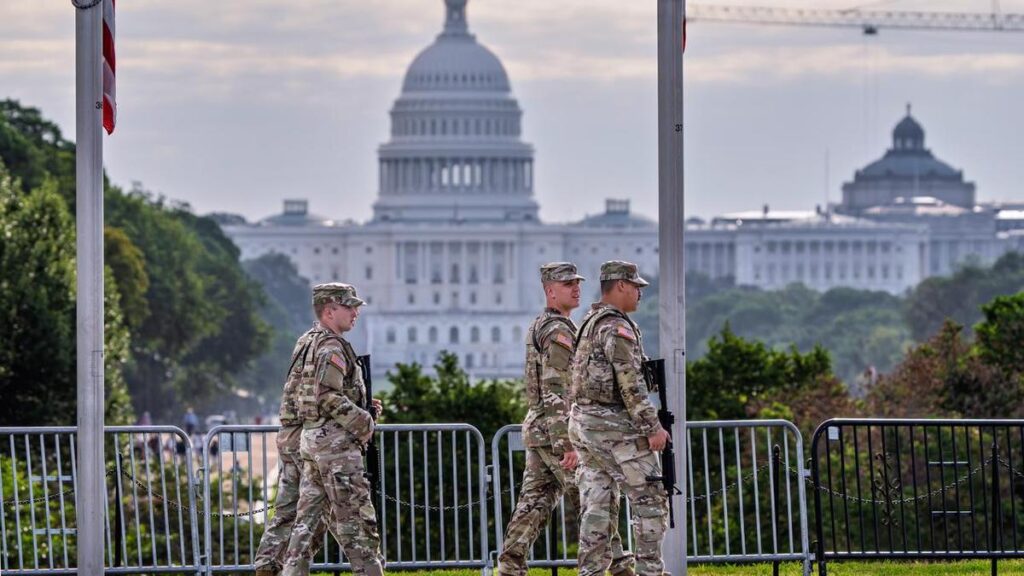
UPDATE: President Donald Trump has just signed an executive order to rename the US Department of Defense to the “Department of War,” marking a significant shift in military branding. This announcement, made during a ceremony at the Oval Office, signifies Trump’s latest effort to redefine the role of the US military in a changing world.
The executive order grants Defence Secretary Pete Hegseth the authority to use secondary titles such as “Secretary of War” in official communications. Trump emphasized the importance of this change, stating,
“It’s a very important change, because it’s an attitude. It’s really about winning.”
This move comes as part of a broader strategy by Trump to reshape military perception, previously showcased by his controversial military parade in Washington DC and his push to restore military base names altered after the 2020 racial justice protests.
The rebranding to the “Department of War” is expected to require legislative approval, with two Republican senators, Mike Lee of Utah and Rick Scott of Florida, introducing legislation to support the name change. However, Trump has questioned the necessity of congressional approval, even as the GOP holds slim majorities in both chambers.
Hegseth, who has long advocated for this change, declared,
“We’re going to go on the offense, not just on defense. Maximum lethality, not tepid legality.”
His enthusiasm reflects a growing trend in military rhetoric under Trump’s administration, focusing on a more aggressive stance.
Historically, the Department of Defense was known as the War Department until 1949, when it was renamed to emphasize conflict prevention in the nuclear age. Critics argue that reverting to the old name is not only costly—potentially leading to expenses similar to the $39 million associated with renaming military bases honoring Confederate figures—but also a distraction for the Pentagon.
The logistics of this name change will involve updating signs and letterheads at military installations worldwide. Nonetheless, Hegseth insists that this is “not just about words — it’s about the warrior ethos,” signaling a shift towards a more combative military identity.
As developments unfold, the implications of this renaming could have significant impacts on military policy and public perception. Observers are watching closely to see if the name change will gain traction in Congress, with the potential for heated debates ahead.
Stay updated on this developing story as the implications for US military policy and international relations become clearer. Share your thoughts on this bold move in the comments below.





